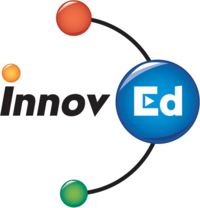InnovEd
INNOVATION FOR THE EDUCATION SECTOR
Introduction
One of the projects that the National Productivity and Competitiveness Council, NPCC has conceived for the education sector is the InnovEd project. It is an innovation which was initiated in the year 2005 in collaboration with the Ministry of Education & Human Resources. This thrust contributes to the strengthening of an innovative and creative mindset at all levels of education, thereby recognising and ultimately rewarding the pupils who take part in it.
Target: Students of schools
- pre-primary
- primary
- secondary
|
How it works
Methodology
- Phase 1: Training
Each year teachers get trained by trainers to, in turn, act as facilitators to prepare and guide the students for the project implementation.
- Phase 2: School Exhibition
Participating schools will have to mount up a school exhibition to exhibit the innovations students have come forward with.
- Phase 3: National/Regional Exhibition and Award Ceremony
Aim of giving full-due recognition to the young innovators.
Fostering the development of important science skills is an ongoing challenge. Students should be given opportunities to solve problems, think creatively, experiment, and work with data throughout the school year. A guide to facilitators to improve the training of students at school level is hereby provided.
Benefits of Creating an Invention Convention
Benefits to Students
- Optional schoolwide program participation
- Opportunity for original creativity and innovation
- Chance to be recognised for their talent
- Opportunity for personal growth and building of self-esteem
- Students are able to identify and solve a problem
- Enhanced communication and research skills
Benefits to School
- Not expensive program
- Community Effort
- Recognition at the national level
Conclusion
The main purpose of this project is to build character, to establish a culture of creativity and innovation. The project is in line with the policy of the Ministry of Education and Human Resources in the context of supporting curriculum goals so as to attain the overall development of the students during their school life.
“We are attempting to educate students today so that they will be ready to solve future problems that have not yet been identified using technologies not yet invented based on scientific knowledge not yet discovered.” J.J. Lagowski
